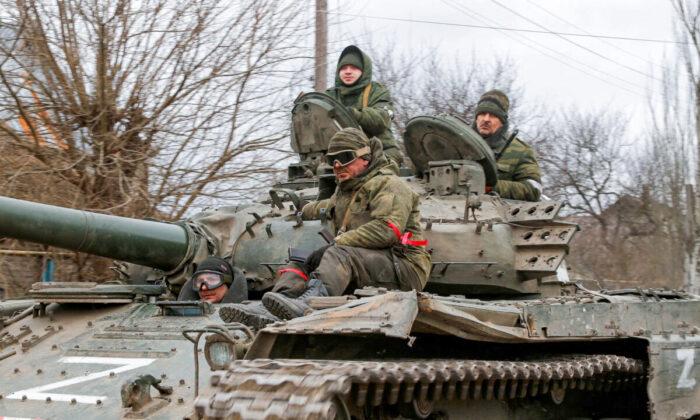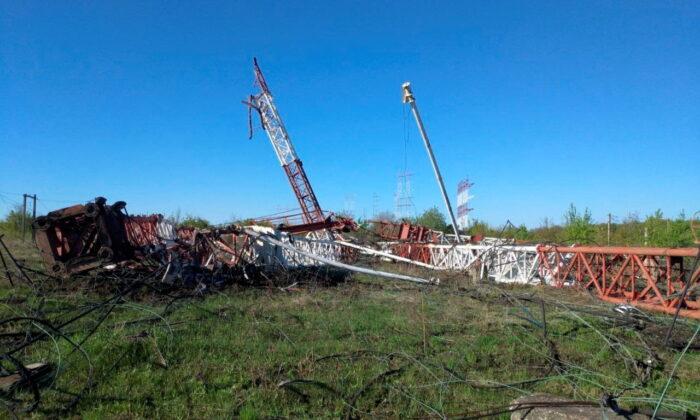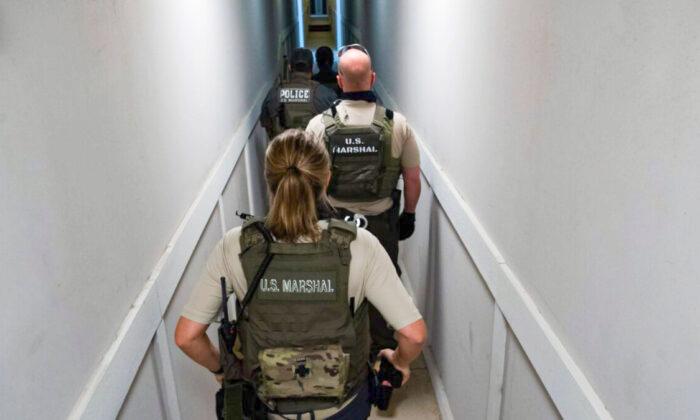The United States has a “moral obligation” to ensure the evacuation of Afghan allied personnel, including interpreters, from Kabul, says former Afghan interpreter Ahmadullah Sediqi, as President Joe Biden’s self-imposed Aug. 31 deadline to leave Afghanistan nears.
With time running out ahead of Biden’s deadline to withdraw remaining U.S. troops from Afghanistan, and the president facing growing criticism amid reports of chaos and occasional violence outside of Kabul’s international airport, vulnerable Afghans who fear a vengeful crackdown by the Taliban terrorist group are voicing desperate pleas to not be left behind.
“It’s not only the interpreters, but their families, their siblings, their parents [who] are still waiting in Afghanistan. I’m here, but my family, my siblings are in Afghanistan,” he said. “It’s our moral, legal duty to help those who have risked their lives alongside the U.S. forces.”
The Pentagon has said that the U.S. military will fly up to 30,000 people out of Kabul, including embassy personnel, U.S. citizens, Afghan SIV applicants, and other at-risk individuals.
Of that total, 8,000 will be transported to a third country for visa processing, with the other 22,000 headed for the United States. Advocates estimate that there are between 50,000 to 80,000 Afghans and their family members applying for SIVs and evacuation, of which the Biden administration has thus far only evacuated a fraction.
Since the Taliban’s takeover of Kabul on Aug. 15, Sediqi said he has been constantly receiving messages from Afghan interpreters who are “so worried” and asking for help to flee the country.
“The current situation is scary,“ he said, noting that he was informed recently that two interpreters were killed by the Islamic extremist group. ”The Taliban are extremist and they are the same people that they were in 1996. They don’t want to leave anybody. When they catch you, they will kill you.”
The former Afghan interpreter warned that the Taliban “most likely” have access to various biometric databases and can therefore easily identify SIV applicants.
“You might have watched all these on social media. ... Kids are waiting, women are waiting. They’re under the sun and don’t have anything to eat or drink, but they’re trying to get out,” he said.
In a stern message for the president, Sediqi urged that Biden take “immediate action” to ensure that “the way that the United States leaves Afghanistan does not become a permanent stain on his legacy and on America’s legacy.”
“If we don’t watch over them, they will be a big threat to the United States and the international communities in the future.”
Biden has defended his decision to withdraw U.S. troops from Afghanistan. However, he admitted that the Afghan government fell more quickly than expected, suggesting that they lacked a fighting spirit.
After Afghan President Ashraf Ghani fled Kabul as the Taliban took over the capital, the country’s Vice President Amrullah Saleh has remained in the country to fulfill his duty as the “caretaker president,” Saleh wrote on Twitter, as outlined in the country’s constitution.
Remnants of Afghan government forces and other militia groups have gathered there, including Defense Minister Gen. Bismillah Mohammadi, declaring the valley to be the last free citadel in Afghanistan.
“There is still much that you can do to aid the cause of freedom,” he wrote. “[W]e need more weapons, more ammunition, and more supplies.”
White House officials didn’t respond to a request for comment by press time.





